Oceane: “In hospital after my suicide attempt, I didn’t want to see my mum at first. I didn’t want to face what I’d done – I was hoping that I’d die of my injuries in the next day or two, and then I wouldn’t have to face her grief or pain. I’d been in that position a lot during my life, of having too deep an empathy for other people’s hurt, and I couldn’t go through it again.
Growing up, I had always felt the need to protect Cécile. Our family life was chaotic, and there was so much anger and violence. We lived then with my dad and my two brothers, who were just a couple of years older than me. My brothers didn’t speak to each other from when they were aged about five and seven until they were young adults. They just pretended the other didn’t exist. And there was no discipline.
In some of my earliest memories, Mum is crying in the shower, or outside, or shouting that she can’t stand it anymore, that she can’t bear it. When I was in kindergarten, I remember thinking, ‘Should I go to school today or should I stay home with her?’
So I grew up with this idea that I couldn’t reach out to her, as she was already on the edge. I formed a habit of silence, which was hard to break. Then in the first term of university in 2002, I was sexually assaulted by a fellow student, and as I spiralled downwards, I couldn’t see a way to talk to her.
I was hoping I’d die of my injuries, then I wouldn’t have to face her pain
When I left hospital, though, I was discharged into Mum’s care. I was in this altered state of reality, suspended precariously between living and not wanting to live, but for the first time in my life I felt so safe with my mum, like she was my anchor. I woke up the first night home in the luxury of a double bed with soft pillows in my old room, with the familiar noises of the house.
But while our relationship gradually improved, it was writing the book together that really changed that habitual silence I’d maintained for so long.
In the years after my suicide attempt I’d written some of my story, trying to keep my 18-year-old voice, but it felt so dark and hopeless – so extreme – that to me it wasn’t a book anyone would want to read. Then one day in early 2010 I stumbled across some pages that mum had written about what happened, and I realised that what I’d been saying in my head, those thousands of conversations I’d had with her over the years, was exactly what she was thinking.
We each wrote a draft and then spent a week at a writer’s centre in the Blue Mountains, cocooned in this place where we had no interruptions, just the opportunity to focus on each other. Reading what we’d written was really moving for both of us and we were blown away by how synchronous our stories were. So the book became a conversation between us, moving between each other’s point of view.
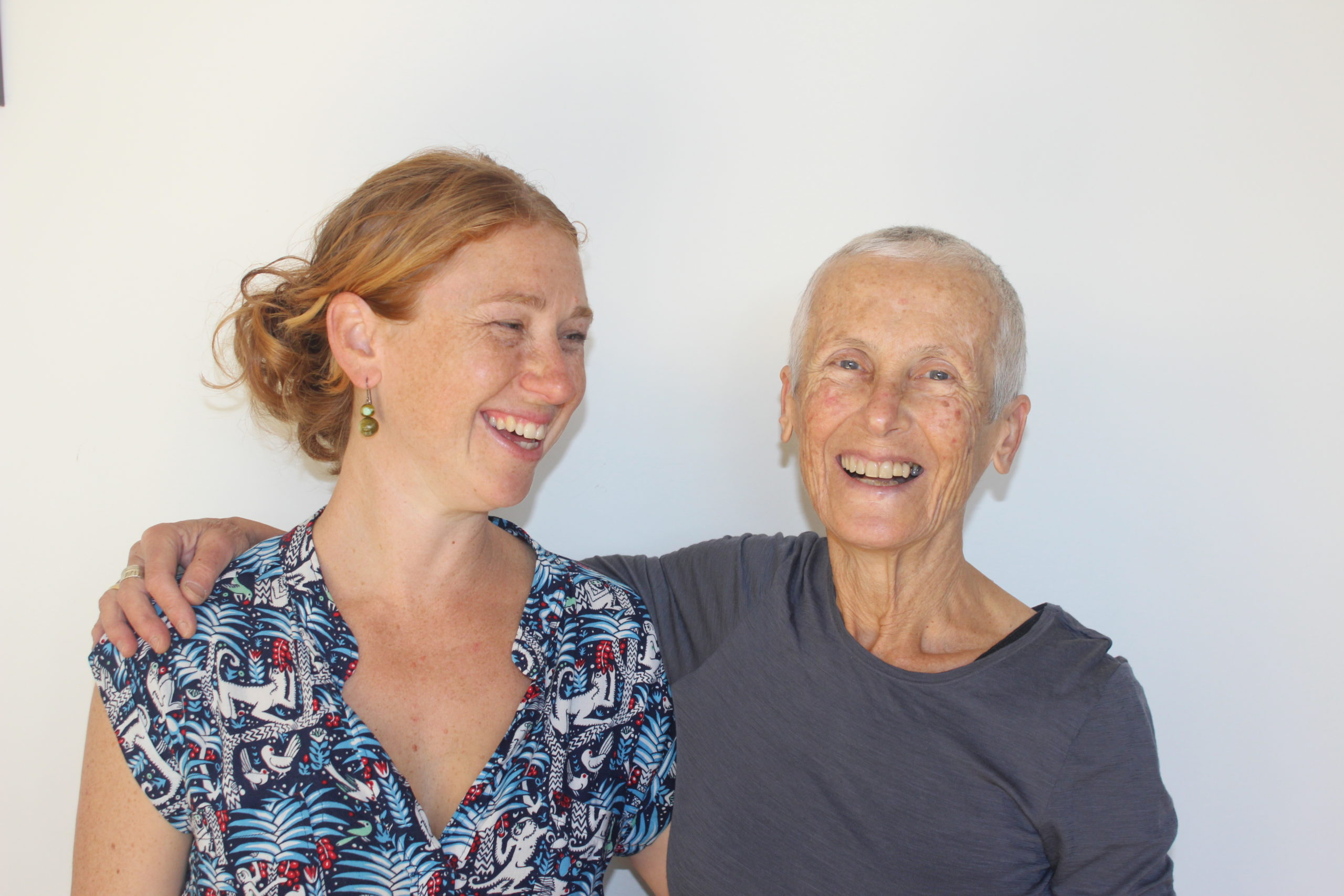

All mum’s feelings of anger and sadness towards me, all her emotions about the suicide attempt were there in her words, which was intense, but the fact we both shared our perspective on it created openness between us. I already knew a lot of her history – in fact, as a child I felt I knew too much – but for the first time I understood what had shaped her.
Our relationship now is an entire universe away from where it was 20 years ago. I don’t feel resentful against her, I don’t hold onto the hurt in the same way.”
Cécile, Oceane’s mum: “I remember clearly the moment Oceane asked if we could write a book together. We were on a bush walk near my home, and she said, ‘I’ve got something to ask you. I need to write my experience and I want your voice in there, too.’ She felt it would help people, which I thought was very important.
When Oceane tried to commit suicide, I was in such shock. I had always thought she was OK, as she was so independent, such a bright child. She was a vaulting champion – she competed overseas – and she was strong, amazing really. The first time I saw her in hospital, she was so pale and there wasn’t much life left in her eyes. I said, ‘Do you remember that day you asked me if I had regrets? And I said that I didn’t? That’s not true anymore. I regret I haven’t been able to protect you.’
I spent a lot of time during that period waiting in hospital hallways, so I carried a little notebook in my pocket. I’ve always journaled and the notes were a way of using words to create movement in that frozen time, to help me through.
A couple of years later, I decided to write it all down, so I had a document to return to if I needed. I didn’t want to forget anything. I committed to writing for a couple of hours every weekend. Each time, I had to stop after an hour, an hour and a half, because it was so emotional. I shared my story with my friends because until then I had been hiding this huge part of me. But I didn’t share it with Oceane.
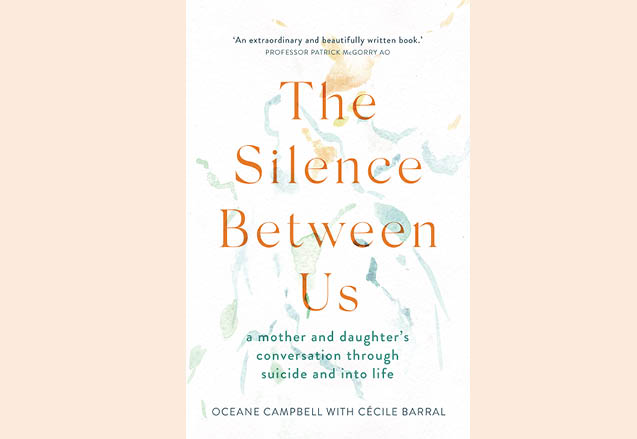

The first time we read our stories to each other [at the writer’s retreat], I was in awe of how they fitted together. It was very painful to hear what had led her to try to kill herself, and how she experienced being in the family. I felt very guilty, but there was comfort in that she was also letting me in.
When Oceane was young, our life was extremely difficult because of the level of poverty. We were homeless at times, and relied on Vinnie’s food coupons to survive. I had three children in just over three years, and it took a couple of years for my partner to find himself and establish himself in a job. There was suicide in my family, too. In the book, I write that I had run away from France and my own family to escape our own history of trauma. I had also been vulnerable at times.
Through Oceane’s writing, I realised how much she felt she was looking after me. We are very close now. I live about a 15-minute walk from Oceane, her wife Sarah and their children, and it’s so lovely to feel we have a healthy relationship. We walk together a few nights each week and I help with the children.
When you give yourself space to examine the past, things can improve. I couldn’t protect my children completely, but when I look at Oceane’s children, they are in a much better space.”
As told to Felicity Robinson
Oceane Campbell is a midwife, who has three children with her wife, Sarah; Cécile is a psychotherapist and mother of three adult children. Their double memoir, The Silence Between Us, is out now (Hardie Grant, $34.99)
If you or a loved one need help, call Beyond Blue on 1300 22 4636




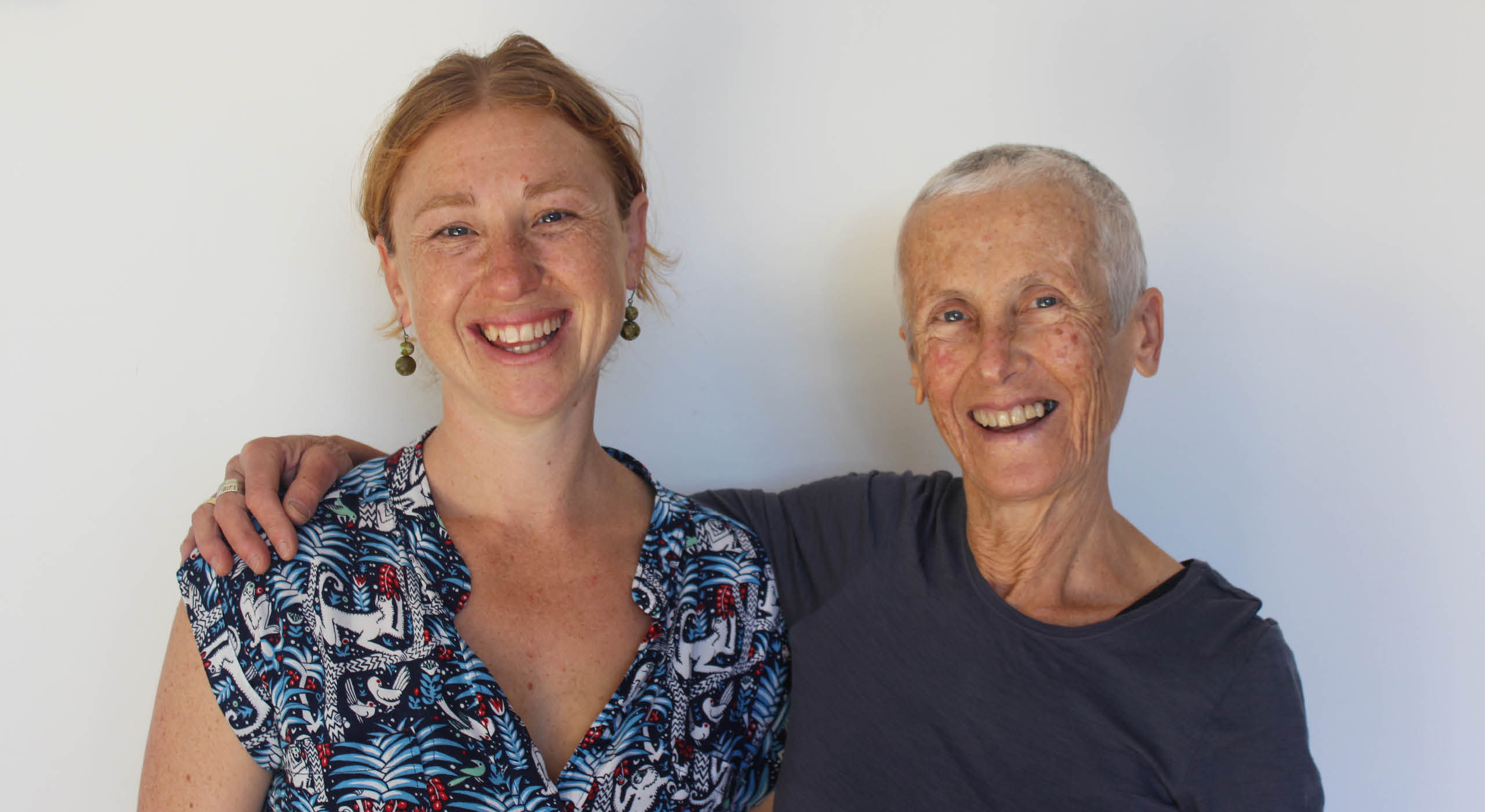
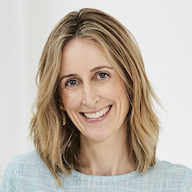



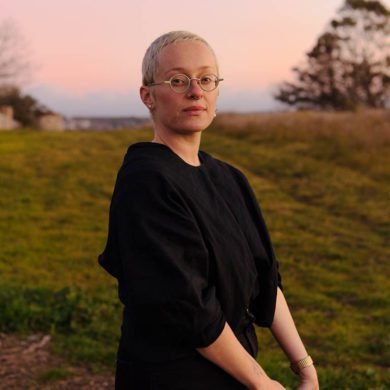
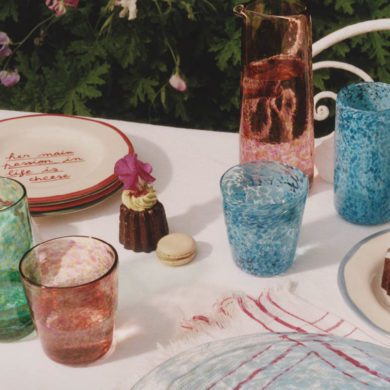
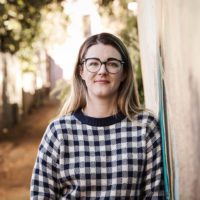


No Comments